Mercedes EQB vs VW Caddy Compact Van – Differences & prices compared
Compare performance, boot space, consumption and price in one view.
Find out now: which car is the better choice for you – Mercedes EQB or VW Caddy Compact Van?
The Mercedes EQB (SUV) comes with a Electric engine and Automatic transmission. In comparison, the VW Caddy Compact Van (Cargo Van) features a Petrol, Diesel or Plugin Hybrid engine with Manuel or Automatic transmission.
When it comes to boot capacity, the Mercedes EQB offers 495 L, while the VW Caddy Compact Van provides – depending on how much space you need. If you’re looking for more power, decide whether the 292 HP of the Mercedes EQB or the 150 HP of the VW Caddy Compact Van suits your needs better.
In terms of consumption, the values are 15.20 kWh per 100 km for the Mercedes EQB, and 0.50 L for the VW Caddy Compact Van.
Price-wise, the Mercedes EQB starts at 45900 £, while the VW Caddy Compact Van is available from 25800 £. Compare all the details and find out which model fits your lifestyle best!
Mercedes EQB
The Mercedes-Benz EQB is an all-electric compact SUV that seamlessly blends practicality with modern luxury. Its sleek design and spacious interior make it an attractive option for families seeking both style and function. With advanced technology and impressive range capabilities, the EQB is a testament to Mercedes-Benz's commitment to sustainable mobility.
details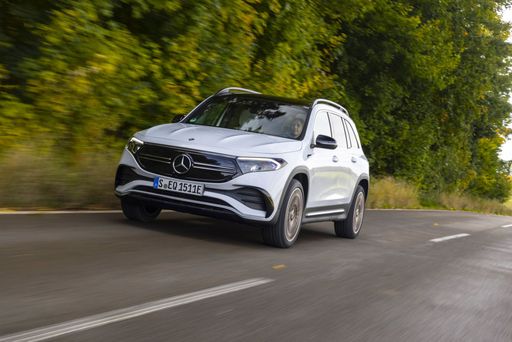 @ group-media.mercedes-benz.com
@ group-media.mercedes-benz.com
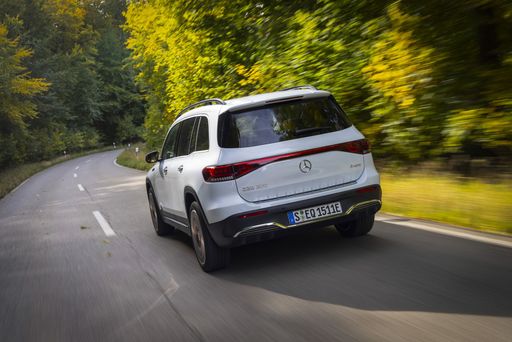 @ group-media.mercedes-benz.com
@ group-media.mercedes-benz.com
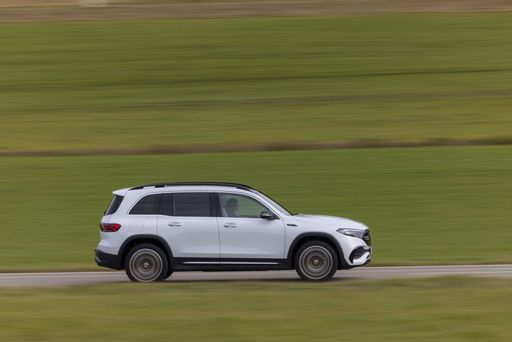 @ group-media.mercedes-benz.com
@ group-media.mercedes-benz.com
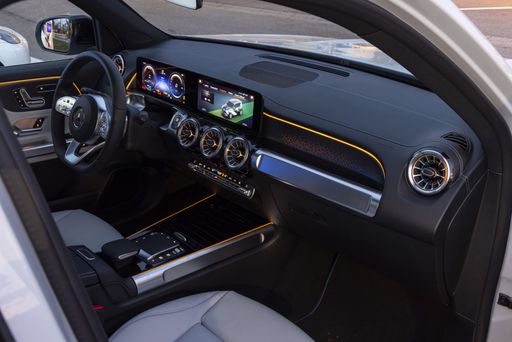 @ group-media.mercedes-benz.com
@ group-media.mercedes-benz.com
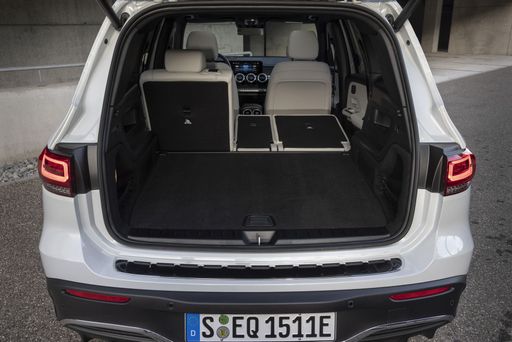 @ group-media.mercedes-benz.com
@ group-media.mercedes-benz.com
VW Caddy Compact Van
The VW Caddy small van is a versatile option for those seeking a practical and efficient transporter. With its sleek design and innovative features, it caters well to both business needs and everyday convenience. The interior is thoughtfully designed, offering comfort and ample space for cargo or passengers, making it a reliable choice for various tasks.
details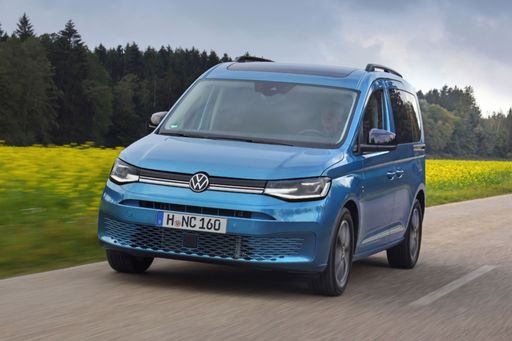 @ vwpress
@ vwpress
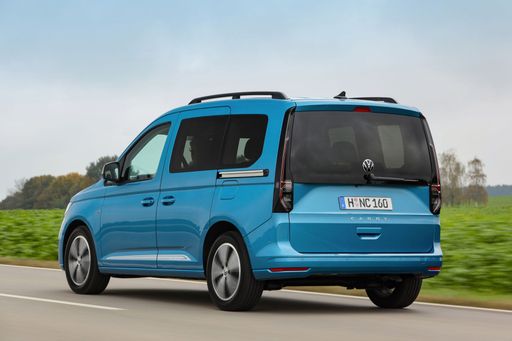 @ vwpress
@ vwpress
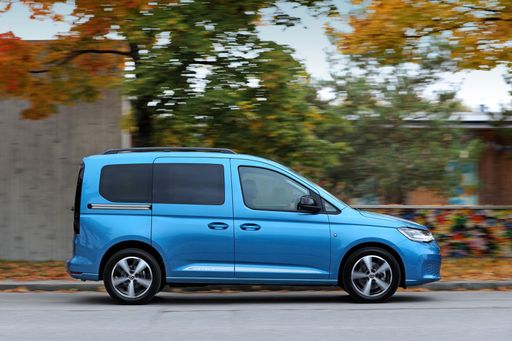 @ vwpress
@ vwpress
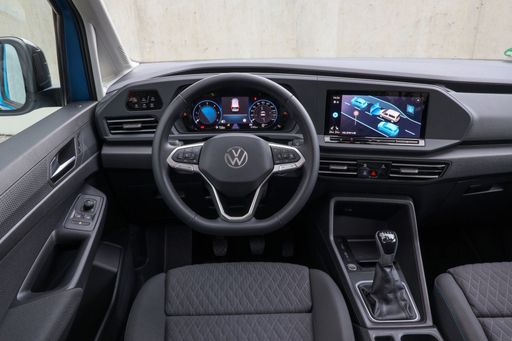 @ vwpress
@ vwpress

|

|
|
|
|
Costs and Consumption |
|
|---|---|
|
Price
45900 - 58900 £
|
Price
25800 - 42300 £
|
|
Consumption L/100km
-
|
Consumption L/100km
0.5 - 6.8 L
|
|
Consumption kWh/100km
15.2 - 17.2 kWh
|
Consumption kWh/100km
-
|
|
Electric Range
468 - 535 km
|
Electric Range
117 - 120 km
|
|
Battery Capacity
70.50 kWh
|
Battery Capacity
19.70 kWh
|
|
co2
0 g/km
|
co2
11 - 154 g/km
|
|
Fuel tank capacity
-
|
Fuel tank capacity
50 L
|
Dimensions and Body |
|
|---|---|
|
Body Type
SUV
|
Body Type
Cargo Van
|
|
Seats
5
|
Seats
2
|
|
Doors
5
|
Doors
4 - 5
|
|
Curb weight
2105 - 2170 kg
|
Curb weight
1442 - 1818 kg
|
|
Trunk capacity
495 L
|
Trunk capacity
-
|
|
Length
4684 mm
|
Length
4500 - 4853 mm
|
|
Width
1834 mm
|
Width
1855 mm
|
|
Height
1654 - 1689 mm
|
Height
1819 - 1823 mm
|
|
Payload
435 kg
|
Payload
628 - 759 kg
|
Engine and Performance |
|
|---|---|
|
Engine Type
Electric
|
Engine Type
Petrol, Diesel, Plugin Hybrid
|
|
Transmission
Automatic
|
Transmission
Manuel, Automatic
|
|
Transmission Detail
-
|
Transmission Detail
Manual Gearbox, Dual-Clutch Automatic
|
|
Drive Type
Front-Wheel Drive, All-Wheel Drive
|
Drive Type
Front-Wheel Drive, All-Wheel Drive
|
|
Power HP
190 - 292 HP
|
Power HP
102 - 150 HP
|
|
Acceleration 0-100km/h
6.2 - 8.9 s
|
Acceleration 0-100km/h
-
|
|
Max Speed
160 km/h
|
Max Speed
175 - 186 km/h
|
|
Torque
385 - 520 Nm
|
Torque
220 - 320 Nm
|
|
Number of Cylinders
-
|
Number of Cylinders
4
|
|
Power kW
140 - 215 kW
|
Power kW
75 - 110 kW
|
|
Engine capacity
-
|
Engine capacity
1498 - 1968 cm3
|
General |
|
|---|---|
|
Model Year
2024 - 2025
|
Model Year
2024
|
|
CO2 Efficiency Class
A
|
CO2 Efficiency Class
E, B
|
|
Brand
Mercedes-Benz
|
Brand
VW
|
Mercedes EQB
Introducing the Mercedes-Benz EQB: A New Era in Electric SUVs
The Mercedes-Benz EQB is a striking testament to the innovative prowess of Mercedes-Benz in the realm of electric vehicles. As an SUV designed for the future, the EQB merges luxury with sustainability, offering a remarkable driving experience complemented by state-of-the-art technology.
Powerful Performance and Efficient Design
Under the bonnet, the EQB is powered by an electric motor that produces between 190 to 292 PS, translating to 140 to 215 kW. This powerful engine allows the EQB to achieve a 0-100 km/h acceleration in just 6.2 to 8.9 seconds, rivaling many other vehicles in its class.
Fuel efficiency remains at the forefront of the EQB's design, with a consumption rate ranging from 15.2 to 17.3 kWh per 100 km. This efficiency ensures the vehicle maintains an impressive electric range between 445 to 533 km per charge, giving drivers the confidence to embark on longer journeys without constant recharging.
Cutting-Edge Technological Innovations
The EQB is packed with innovations that make driving an intuitive and seamless experience. The vehicle boasts a state-of-the-art emissions rating of zero CO2 per km, proudly placing it in the A class of CO2 efficiency. The integrated automatic transmission, specifically the Reduktionsgetriebe, offers smooth transitions and enhances overall driving comfort.
Roomy Interior and Premium Features
Step inside the EQB to find a spacious and luxurious interior, capable of accommodating five passengers comfortably. With a luggage capacity of 495 litres, this SUV caters to both adventure and everyday needs. The EQB comes available in several exquisite lines, including AMG Line Advanced and Electric Art Advanced Plus, ensuring there's a version to match every style preference.
Safety and Reliability
Safety has always been a priority for Mercedes-Benz, and the EQB continues this legacy. With an all-wheel-drive option on certain models, enhanced traction and stability are provided across a variety of driving conditions. Furthermore, the EQB's substantial weight range from 2105 to 2170 kg adds to its robust and stable feel on the road.
Pricing and Ownership Costs
The price of the EQB starts at €53,514, and the top-end models can go up to €68,734. Mercedes-Benz offers several financing options to suit various budgets, with running costs calculated at approximately 47.4 to 55.9 cents per kilometre, making it an economically viable choice for the environmentally conscious driver.
The Mercedes-Benz EQB is more than just a vehicle; it represents a shift towards a more sustainable future, without compromising on luxury or performance. Whether you're navigating city streets or venturing into the countryside, the EQB is engineered to deliver an exceptional driving experience every time.
VW Caddy Compact Van
Compact Versatility: A Closer Look at the VW Caddy Compact Van
The VW Caddy Compact Van has long been a staple in the commercial vehicle sector, offering a versatile and robust solution for professionals and businesses alike. Combining impressive technical capabilities with innovative features, the latest iteration of the Caddy Compact Van continues to uphold its legacy as a dependable and efficient vehicle.
Engine Performance and Efficiency
At the heart of the VW Caddy Compact Van lies an efficient and powerful engine range designed to meet varying performance needs. The van comes with several engine options, including economical yet robust diesel engines and responsive petrol variants. These engines have been engineered to optimize fuel efficiency without compromising on power, making the van a cost-effective option for urban deliveries and long highway journeys alike.
Innovative Design and Practicality
The VW Caddy Compact Van features a meticulously crafted design that focuses on practicality and space utilization. Its compact dimensions are perfect for navigating busy city streets, while the interior offers a surprisingly spacious cargo area. This innovative design ensures that every inch of space is used effectively, maximizing cargo capacity without affecting driver and passenger comfort.
Advanced Technology for Modern Needs
Embracing modern technology, the VW Caddy Compact Van is equipped with a host of intelligent systems aimed at enhancing safety and convenience. The van features advanced driver-assistance systems, including adaptive cruise control, park assist, and a rear-view camera. These features contribute to a safer driving experience, whether maneuvering through narrow city streets or handling larger loads on the highway.
Comfort and Convenience Inside
Inside, the VW Caddy Compact Van presents a blend of comfort and practicality. The ergonomic design ensures that all controls are within easy reach, allowing the driver to focus on the road. Optional infotainment systems and connectivity features, such as smartphone integration and Bluetooth connectivity, provide a seamless driving experience, turning the Caddy into a mobile office on wheels.
Environmental Responsibility
In light of increasing environmental awareness, the VW Caddy Compact Van has been designed to minimize its ecological footprint. The efficient engine options produce low CO2 emissions while adhering to stringent environmental standards. This commitment to environmental responsibility makes the Caddy a smart choice for businesses looking to reduce their carbon footprint.
Conclusion: A Dependable Partner
In conclusion, the VW Caddy Compact Van remains a leader in its class, offering a dynamic combination of performance, efficiency, and practicality. Its innovative features and advanced technology cater to the diverse needs of modern businesses, ensuring the Caddy is not just a vehicle, but a reliable partner on the road. Whether used for transporting goods or as a mobile workshop, the VW Caddy Compact Van continues to deliver on its promise of versatility and dependability.
The prices and data displayed are estimates based on German list prices and may vary by country. This information is not legally binding.
